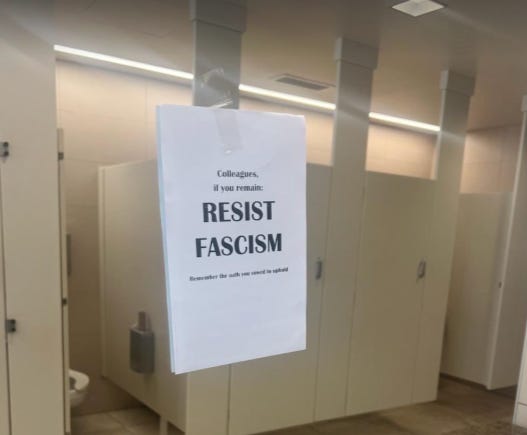Political Consciousness and The State Department Purge
Can a downsized “lanyard class” learn to see US foreign policy differently?
The long-predicted purge of the State Department was just announced:
The State Department is firing more than 1,300 employees…sending layoff notices to more than 1,100 civil servants and 240 Foreign Service employees…Secretary of State Marco Rubio [has] accused certain bureaus within the department of pursuing a “radi…


